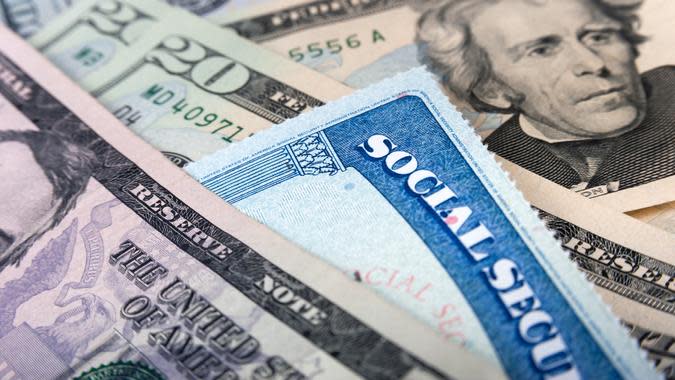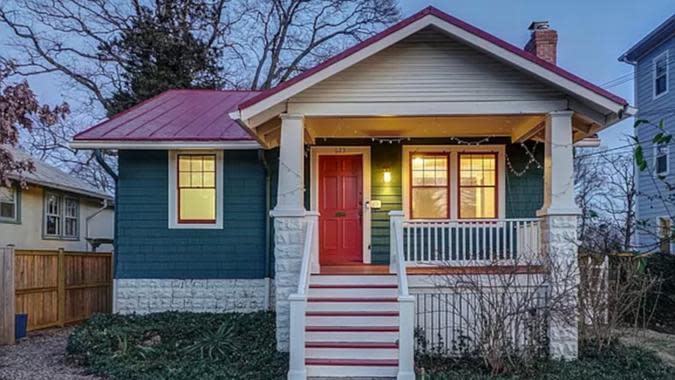7 Ways Upper-Class People Become Poor in Retirement

Though millions of people head into retirement with scarcely enough set aside to comfortably live out their golden years, many are in good shape — possibly even bidding adieu to the workforce at millionaire status.
Trending Now: I’m a Frugal Shopper: 7 Things I Never Waste Money On
Check Out: 6 Unusual Ways To Make Extra Money (That Actually Work)
But even upper-class people can become poor in retirement. How does this happen? What goes wrong? Let’s take a look.

You Underestimate Your Life Expectancy
Americans are living longer lives, and while this seems like a clear blessing, it can be a mixed one in retirement. Do you really have enough money saved to live to be 93 or older?
“One of the biggest risks we are going to face is longevity risk — the risk of outliving our assets,” said Melissa Murphy Pavone, CFP, CDFA and investments director at Oppenheimer & Co. Inc. “With the advances in medicine and technology people are living longer. One out of four, 65-year-old men of average health will live to age 93. One out of four, 65-year-old women will live to age 96. We need to plan for a longer retirement period.”
Learn More: 5 Unnecessary Bills You Should Stop Paying in 2024
For You: How To Get $340 Per Year in Cash Back on Gas and Other Things You Already Buy

You Don’t Factor in Healthcare Costs That Medicare Doesn’t Cover
Yes, Medicare will widely provide for you in your elder years but don’t bank on it covering absolutely everything. You need an ample nest egg for medical needs.
“Another mistake I have witnessed is retirees often overlooking the impact of healthcare costs in retirement,” said Pavone. “This added expense, if not accounted for, can quickly deplete retirement savings.”
Try This: 6 Things Minimalists Never Buy — and You Shouldn’t Either

You Have No Emergency Cash on Hand
A home is a wonderful financial asset, especially if the mortgage is paid off, but keeping all your money tied up in your home or other non-liquid assets could mean danger if an unexpected expense arises that requires cash.
“[If] you don’t have cash for any major emergency, you’d need to borrow money to pay any substantial bill,” said Leonie Rosenstiel, president of Dayspring Resources, Inc. “If you’re retired, where will you get that cash infusion to repay the loan if all the rest of your expenses continue at the same level they were before, or increase?”

You Live on a Fixed Annuity
A fixed annuity will, most likely, always stay the same (hence the term, “fixed”) — and that’s a tough reality when you’re living with inflation.
“My mother was retired for more than 30 years,” said Rosenstiel. “When she retired, she had one fixed annuity and one variable annuity. The fixed annuity paid exactly $100 per month, no matter what. Mama retired in 1981 and passed away in 2012. Inflation during that period was 152.58%, at an annual rate of 3.03%. That $100 might have bought her a single nice restaurant meal by the time she died.”

You Didn’t Appoint a Power of Attorney in Time
Once you reach the age where you can no longer handle your personal or financial affairs, someone else has to step in, legally, as your power of attorney. This can be a stressful and expensive process — if you wait too long.
“This is the Wendy Williams example,” said Rosenstiel. “She didn’t seem to need a power of attorney. She was young to have dementia. She was a celebrity, and no one prepared for anything like that possibility. In the recent documentary about her, Wendy is quoted as saying that she now has ‘no money.’ While that might be somewhat of an exaggeration, she undoubtedly has far less than she used to.”
Matters get far more costly if this whole rigamarole lands you/your estate in court, which is more likely than not.
“If there is any disagreement at all, you’ll almost certainly end up in court,” said Rosenstiel. “Once a court gets involved, you almost certainly have a separate investment person who is also getting a separate fee. Either the conservator will be given the discretion to appoint an expert or the judge will appoint one. Some trust companies have been known to charge 2%/year for management. That’s 2% of the total invested. If this goes on for any extensive period, you can do the math yourself. I’ve even heard of some trust companies that charge 4%.”
Be Aware: I’m a Financial Advisor: These 5 Index Funds Are All You Really Need

You Spent a Fortune Retrofitting Your Home
It’s not unusual to need some adjustments around the home as you age. For example, you may at some point no longer be able to safely go up or down stairs, or you need a walk-in tub to bathe. Customizing your home to suit your different needs can set you back a fortune.
“In 2009, it cost $40,000 for lifts to retrofit a 2800-foot, split-level home,” Rosenstiel said. “With inflation, that would now be $57,859.67.”

You Need Skilled Nursing Care
So many older Americans find themselves needing care in the home or outside of it, possibly even ’round the clock. These costs can break even a wealthy person.
“Let’s say that you have signed on for one of those insurance policies that converts to a medical care policy if you need long-term care,” Rosenstiel said. “If you plunk down $100,000, you won’t have that money to use in the meantime. That’s point number one. Suppose that you do need skilled care. If someone wants to stay at home, that’s more expensive.”
More From GOBankingRates
This is One of the Best Ways to Boost Your Retirement Savings in 2024
6 Things You Should Never Do With Your Tax Refund (Do This Instead)
This article originally appeared on GOBankingRates.com: 7 Ways Upper-Class People Become Poor in Retirement
